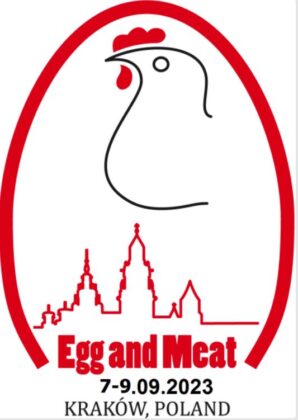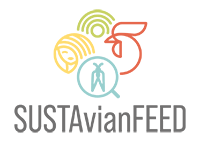The EGE Team Presents Preliminary Findings in the project’s framework
In the quest for more sustainable and environmentally friendly poultry nutrition, the SUSTAvianFEED project is taking a bold step forward. In this framework, the EGE team, partner of our project, recently showcased its preliminary findings at the XIXth European Symposium on the Quality of Eggs and Egg Products and the XXVth European Symposium on the Quality of Poultry Meat, held in Krakow, Poland, from September 7 to 9, 2023.

The Egg and Meat Quality Symposium series, organized every two years by Working Groups 4 (Egg quality) and 5 (Meat quality) of the European Federation of the World’s Poultry Science Association (WPSA), has been at the forefront of advancing the science behind poultry nutrition and production. This year’s symposia were organized by the Polish branch of WPSA and supported by the European Federation of WPSA, and they did not disappoint.
The scientific program was nothing short of impressive, featuring 20 keynote speakers, 61 oral and 60 poster presentations on different subjects of egg and meat quality including alternative feedstuffs and insects as one of the alternative protein sources. What truly set this event apart, however, was its focus on alternative feedstuffs and insects as potential protein sources for poultry.
It’s in this context that the SUSTAvianFEED project stepped into the spotlight.
The EGE team, consisting of Servet Yalcin, Muazzez Comert Acar, and Sezen Ozkan, presented their findings under the banner of “Effect of replacing soybean with alternative feedstuffs on meat quality of a local broiler line.” Their poster presentation unveiled a promising shift in the way we think about poultry nutrition.
The results were interesting. Birds that were fed locally available alternative feedstuffs, including sunflower meal, brewer’s dried grain, and wheat middlings, exhibited a significant increase in relative breast weight. What’s more, this dietary change had no adverse impact on the sensory scores of the breast meat. This means that not only were the birds healthier, but their meat remained just as palatable to consumers.
The innovative dietary approach also had a positive impact on the nutritional composition of the meat. The alternative diet led to a reduction in saturated and monounsaturated fatty acids in the breast meat, which is beneficial for health-conscious consumers. On the flip side, there was an increase in polyunsaturated fatty acids, which are known for their heart-healthy properties.
These preliminary findings from the SUSTAvianFEED project have far-reaching implications for the poultry industry. By exploring alternative feed sources, we can reduce the environmental footprint of poultry production while simultaneously improving the nutritional quality of the meat.
As we look ahead to a future where sustainable practices are more critical than ever, projects like SUSTAvianFEED are leading the way. With their innovative research and commitment to positive change, the team behind this project is paving the path towards a more sustainable and nutritious future for poultry production.








Leave a Reply
You must be logged in to post a comment.